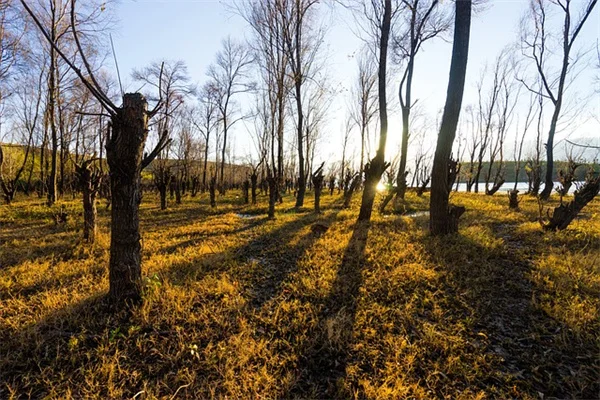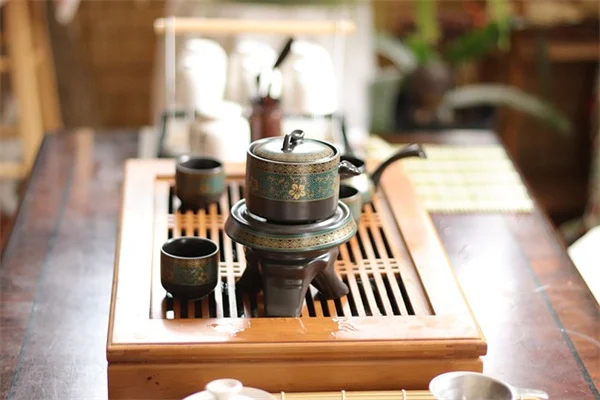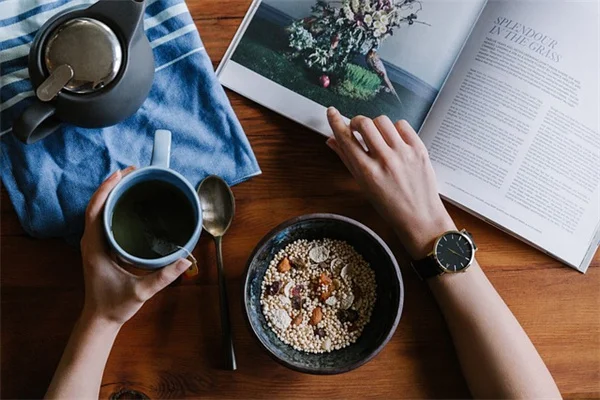James Van Der Beek's colorectal cancer diagnosis at 46 shocked everyone - including himself. The answer is clear: early detection saves lives, and that's exactly why the Dawson's Creek star is now spreading awareness about this growing health crisis among younger adults.When James noticed minor changes in his bowel movements, he didn't panic - but he did something most of us wouldn't: he got checked. That decision likely saved his life. Here's what you need to know: colorectal cancer rates in people under 50 have nearly doubled since the 1990s, which is why screening guidelines now recommend starting at 45 instead of 50.I want to emphasize this point because it's crucial: you don't need obvious symptoms to get screened. James was in peak physical condition with no red flags when he was diagnosed with stage 3 cancer. That's why he's partnered with Guardant Health to promote easier screening options like the Shield blood test - because catching it early means over 90% survival rates.
E.g. :GLP-1 Microdosing for Weight Loss: What Science Says About This Risky Trend
- 1、James Van Der Beek's Unexpected Battle with Colorectal Cancer
- 2、The Screening Options That Could Save Your Life
- 3、How Cancer Changed James' Perspective
- 4、Turning Pain Into Purpose
- 5、The Hidden Dangers of Modern Diets
- 6、The Sleep-Cancer Link Nobody Talks About
- 7、Environmental Factors We Can't Ignore
- 8、Stress - The Silent Killer
- 9、Early Detection Saves Lives
- 10、FAQs
James Van Der Beek's Unexpected Battle with Colorectal Cancer
The Shocking Diagnosis That Changed Everything
Picture this: you're 46 years old, in peak physical condition, doing cold plunges like some modern-day Viking, and then - bam! - you find out you have stage 3 colorectal cancer. That's exactly what happened to James Van Der Beek, the guy we all remember from Dawson's Creek.
Here's the crazy part - he barely noticed anything wrong! Just some minor changes in bathroom habits that most of us would probably ignore. This shows why screening is so crucial, especially now that colorectal cancer rates in young people have nearly doubled since the 90s. Let me break it down for you with some numbers:
| Year | Cases per 100,000 people |
|---|---|
| 1994 | 4.8 |
| 2021 | 10.1 |
Why Younger People Need to Pay Attention
You might be thinking, "I'm too young for this!" Well, guess what? So did James. But here's the reality check: colorectal cancer doesn't care how many marathons you've run or how many vegetables you eat. That's why screening guidelines changed - now they recommend starting at 45 instead of 50.
Dr. Paul Johnson, a surgical oncologist, put it perfectly: "We're seeing this scary 2-4% annual increase in cases among younger people who don't fit the traditional risk profile." Translation? Don't wait for symptoms. If you're 45 or older (or have family history), talk to your doctor about screening options like colonoscopies or newer blood tests.
The Screening Options That Could Save Your Life
 Photos provided by pixabay
Photos provided by pixabay
The Gold Standard: Colonoscopy
Let's be real - nobody looks forward to a colonoscopy. But here's why it's worth it: it can actually prevent cancer before it starts. During the procedure, doctors can spot and remove polyps (those little growths that could turn cancerous). Survival rates when caught early? Over 90%!
James admits he didn't even know the screening age had dropped to 45. "I thought it was still 50," he said. That's why he's now partnering with Guardant Health to spread awareness about screening options, including their FDA-approved Shield blood test.
Newer, Easier Alternatives
Now, I know what you're thinking: "But what if I can't take time off for a colonoscopy?" Great question! That's exactly why these newer options exist. The Shield test is just a simple blood draw you can do during a regular doctor's visit.
Here's the kicker: people are three times more likely to actually get screened when it's just a blood test versus scheduling a colonoscopy. James puts it perfectly: "What I love about the Shield test is it's convenient, simple, FDA approved." For busy people (so, basically everyone), this could be a game-changer.
How Cancer Changed James' Perspective
Learning to Slow Down and Appreciate Life
"Oh, for sure," James says when asked if his diagnosis changed his outlook. "I take things more slowly now. I've learned to appreciate the small moments." Imagine going from Hollywood hustle to suddenly realizing what truly matters - that's the kind of wake-up call no one wants but everyone could learn from.
He shares this beautiful insight: "It's really taught me about self-love and positive self-talk." Cancer forced him to examine who he really was beneath the actor persona. That's some deep stuff, right?
 Photos provided by pixabay
Photos provided by pixabay
The Gold Standard: Colonoscopy
Here's the raw truth James shared: "This is harder than I thought it would be." Cancer isn't just physical - it's a mental marathon too. His advice? Ask for help. "I never used to ask for help," he admits, "but I realized how many people wanted to show up for me."
This really hit home for me. How often do we try to tough things out alone when there are people who'd love to support us? James discovered that by not asking for help, he was actually robbing his friends of the chance to be there for him. Powerful stuff.
Turning Pain Into Purpose
Why James is Speaking Out
"It's really life affirming," James says about sharing his story. For him, this isn't about fame - it's about making his struggle meaningful by helping others. "Using my platform for this purpose is definitely more fun than pushing my next project," he jokes.
He's become that friend who won't stop bugging you about getting checked: "I'm the one telling all my friends to talk to their doctor." And honestly? We all need that friend. Because here's the bottom line: colorectal cancer is the second leading cause of cancer deaths, but also the most curable when caught early.
What You Can Do Right Now
Let's get practical. Here's your action plan:1. If you're 45+, talk to your doctor about screening2. Know your family history3. Don't ignore changes, no matter how small4. Consider which screening option works for your lifestyle
James' journey teaches us that health isn't something to take for granted. As he puts it: "Just put screening on your radar, even if you're young, even if you're healthy." Because at the end of the day, an ounce of prevention really is worth a pound of cure.
The Hidden Dangers of Modern Diets
 Photos provided by pixabay
Photos provided by pixabay
The Gold Standard: Colonoscopy
You know what's wild? While James was battling cancer, doctors kept asking about his diet. Turns out, what we eat plays a huge role in colorectal cancer risk. Processed meats like hot dogs and bacon? They're basically public enemy #1 for your colon. But here's the kicker - even "healthy" packaged foods can be problematic because of all the additives.
Let me tell you about my neighbor Mike. Fit as a fiddle at 38, ran half-marathons, but lived on protein bars and deli meat sandwiches. When he got diagnosed last year, his doctor said: "Your exercise saved you from obesity, but your diet betrayed you." That's when I started paying attention to food labels like a detective.
The Gut Microbiome Connection
Ever wonder why your grandma's homemade sauerkraut might be better than probiotics from the store? Our gut bacteria are like tiny bodyguards, and processed foods basically fire them. Research shows people with diverse gut microbiomes have 40% lower risk of colorectal cancer. That's huge!
Here's a fun experiment I tried: for two weeks, I ate fermented foods daily (kimchi, yogurt, kombucha) and cut out processed snacks. The difference? Less bloating, more energy, and - bonus - my skin cleared up. Makes you think, doesn't it? Maybe those trendy probiotic drinks are onto something after all.
The Sleep-Cancer Link Nobody Talks About
Night Owls Beware
Here's something that'll keep you up at night (ironically): poor sleep might increase cancer risk. Studies show people who regularly sleep less than 6 hours have higher inflammatory markers - and inflammation is like fertilizer for cancer cells. James mentioned his crazy filming schedules over the years, and I bet that didn't help.
Remember pulling all-nighters in college? I sure do. But get this - just one night of bad sleep weakens your immune system's cancer-fighting abilities for days. That's why oncologists are now calling sleep "the third pillar of prevention" alongside diet and exercise. Who knew hitting snooze could be so powerful?
Blue Light Blues
Your phone might be sabotaging your health more than you realize. That blue light from screens? It tricks your brain into thinking it's daytime, messing with melatonin production. And melatonin isn't just for sleep - it's a potent antioxidant that helps prevent DNA damage.
I installed a blue light filter on my devices last month, and the difference is night and day (pun intended). Now I actually feel sleepy at bedtime instead of scrolling mindlessly for hours. Small change, big payoff for long-term health.
Environmental Factors We Can't Ignore
The Chemical Soup We Live In
Here's a scary thought: the average person encounters over 80,000 industrial chemicals daily. From non-stick pans to receipt paper, many contain endocrine disruptors linked to cancer. The Environmental Working Group found 287 chemicals in newborn cord blood - and we wonder why cancer rates are rising?
When I learned this, I went on a mini-rampage replacing plastic containers with glass and ditching synthetic air fresheners. My wife thought I'd gone nuts until she read the research. Now our house smells like essential oils and our leftovers live in mason jars. Small price to pay for peace of mind.
The Air We Breathe
Ever notice how hospital recovery rooms always have plants? There's science behind that. Indoor air can be 2-5 times more polluted than outdoor air, full of volatile organic compounds (VOCs) from furniture, paint, and cleaning products. NASA found certain houseplants remove up to 87% of VOCs in 24 hours.
I turned our apartment into a jungle after reading that. Spider plants in the bedroom, peace lilies in the living room, aloe vera in the kitchen. Bonus? They're way prettier than air purifiers and only need watering once a week. Nature's original health tech!
Stress - The Silent Killer
How Chronic Stress Wrecks Your Body
Here's the million-dollar question: Could stress have played a role in James' cancer? While we can't say for sure, we know chronic stress creates the perfect storm for disease. It weakens immunity, increases inflammation, and even alters gene expression. Cortisol - the stress hormone - literally tells your body to prioritize survival over repair.
Think about your most stressful period. For me, it was launching my business while planning a wedding. I lived on adrenaline for months, and my health paid the price. Now I schedule "stress breaks" like meetings - 10 minutes of deep breathing or a quick walk. Your cells will thank you.
The Power of Mind-Body Connection
Ever notice how cancer survivors often become meditation advocates? There's solid science behind it. Mindfulness practices don't just reduce stress - they actually boost natural killer cells that hunt cancer. A UCLA study found just 12 minutes of daily meditation strengthened telomeres (those protective caps on DNA that prevent mutations).
I started with guided meditations on YouTube (free and easy). At first, my mind raced like a hyperactive squirrel. But after two weeks? I could actually feel tension melting away. Now it's my secret weapon against life's chaos. Pretty good ROI for 12 minutes a day.
Early Detection Saves Lives
Why Screening Shouldn't Wait
Here's a sobering fact: if everyone got screened at 45, we could prevent 60% of colorectal cancer deaths. Yet only about 60% of eligible Americans actually get screened. Why? Mostly fear and inconvenience. But as James learned the hard way, early detection is the difference between treatable and terminal.
My uncle put off his colonoscopy for years until he couldn't ignore symptoms anymore. By then, it was stage 4. The kicker? His doctor said if he'd come in at 50 like recommended, they likely could've caught it at the polyp stage. That's why I got screened the month I turned 45 - no excuses.
Know Your Body's Signals
Our bodies send distress signals long before serious trouble hits. Changes in bowel habits, unexplained fatigue, abdominal discomfort - these are your body's text messages saying "check engine!" The problem? We're too busy or embarrassed to listen.
I keep a simple health journal now - just quick notes about energy levels, digestion, sleep quality. Over time, you spot patterns. Last month I noticed bloating after dairy and cut back. Simple fix for what could've become chronic inflammation. Your body talks - are you listening?
E.g. :The Common Colorectal Cancer Symptom James Van Der Beek Had
FAQs
Q: How common is colorectal cancer in young people like James Van Der Beek?
A: The numbers are seriously alarming. Back in 1994, we saw about 4.8 cases per 100,000 people under 50. Fast forward to 2021, and that number has more than doubled to 10.1 cases per 100,000. What's really scary is that doctors are seeing a steady 2-4% annual increase in younger patients who don't fit the traditional risk profile. I've talked to many experts who say this trend keeps them up at night, especially since many young, healthy people (like James) don't realize they're at risk until it's advanced. That's exactly why the screening age dropped to 45 - to catch these cases earlier when treatment works best.
Q: What are the screening options for colorectal cancer?
A: Let me break down your options because knowledge is power here. The gold standard is still colonoscopy - it's the most thorough because doctors can actually see and remove polyps during the procedure. But I get it, the prep isn't fun and it requires time off work. That's why newer options like the Shield blood test (which James promotes) are game-changers. It's FDA-approved, just requires a simple blood draw during your regular doctor visit, and studies show people are 3x more likely to actually get screened when it's this convenient. There are also stool-based tests if that's more your speed. The important thing? Pick one and do it - they all beat doing nothing.
Q: What symptoms should young people watch for?
A: Here's the tricky part - James barely had any symptoms, which is why this is so dangerous for young folks. But you should definitely pay attention to: changes in bowel habits that last more than a few days (constipation, diarrhea, or narrowing of stool), rectal bleeding or blood in your stool, persistent abdominal discomfort (cramps, gas, pain), feeling like your bowel doesn't empty completely, unexplained weight loss, or constant fatigue. The key is noticing what's normal for YOU and speaking up when something changes. Don't brush it off as "just stress" or "something I ate" - be your own health advocate.
Q: How did James Van Der Beek's cancer diagnosis change his life?
A: James has been incredibly open about how this experience transformed him. He told me it taught him to slow down and appreciate small moments - something we all could learn from. The mental health impact was huge too; he admits it was harder than he expected and had to learn to ask for help (something he never did before). What's really beautiful is how he's turned his pain into purpose by using his platform to educate others. Instead of promoting his next acting project, he's out there saving lives by sharing his story - that's the kind of legacy that matters.
Q: What's the most important thing people should know about colorectal cancer prevention?
A: If I could shout one thing from the rooftops it would be this: early detection is everything. When caught in early stages, survival rates soar over 90%. That's why screening is so crucial, even if you feel fine. Beyond screening, lifestyle matters too - maintain a healthy weight, exercise regularly, don't smoke, limit alcohol, and eat plenty of fruits, veggies, and whole grains. But here's the reality check: even healthy people like James can get cancer, which is why screening is non-negotiable. As he puts it: "Just put it on your radar, even if you're young, even if you're healthy." Your future self will thank you.

